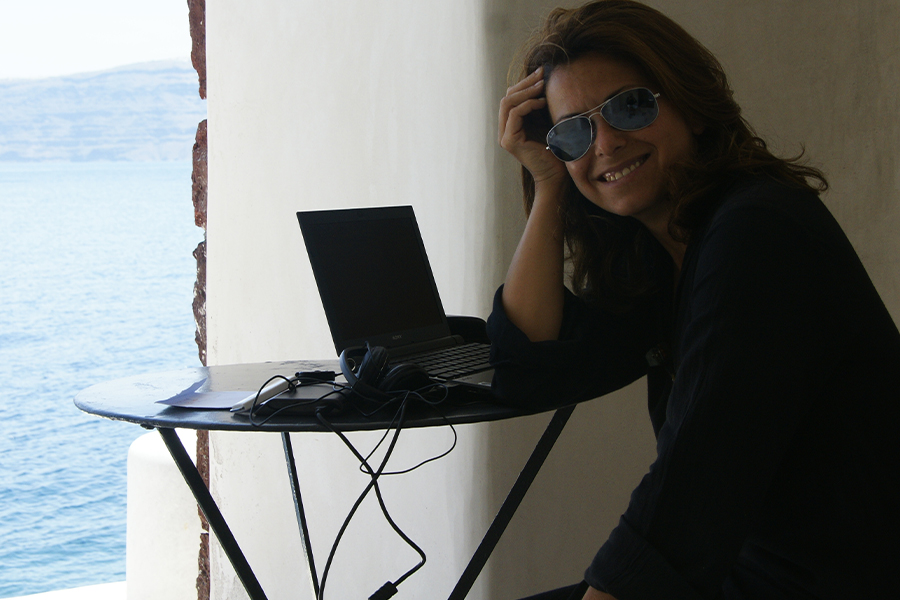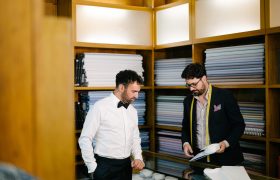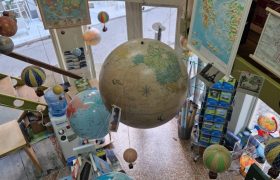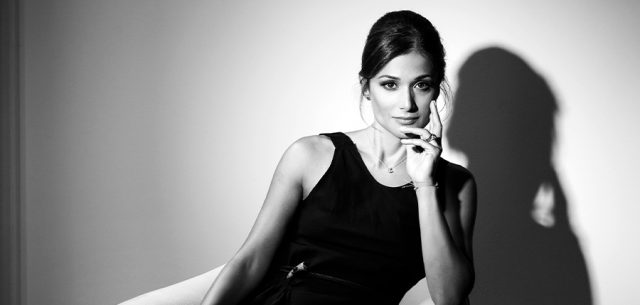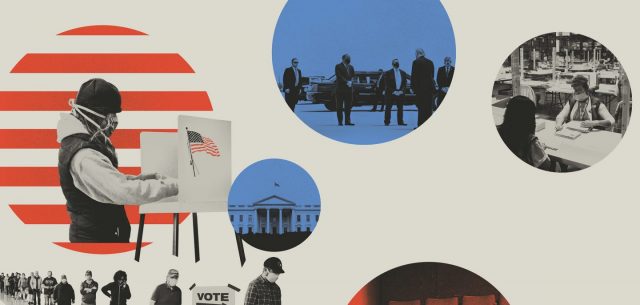To think that Pink is my Least Favourite Colour!
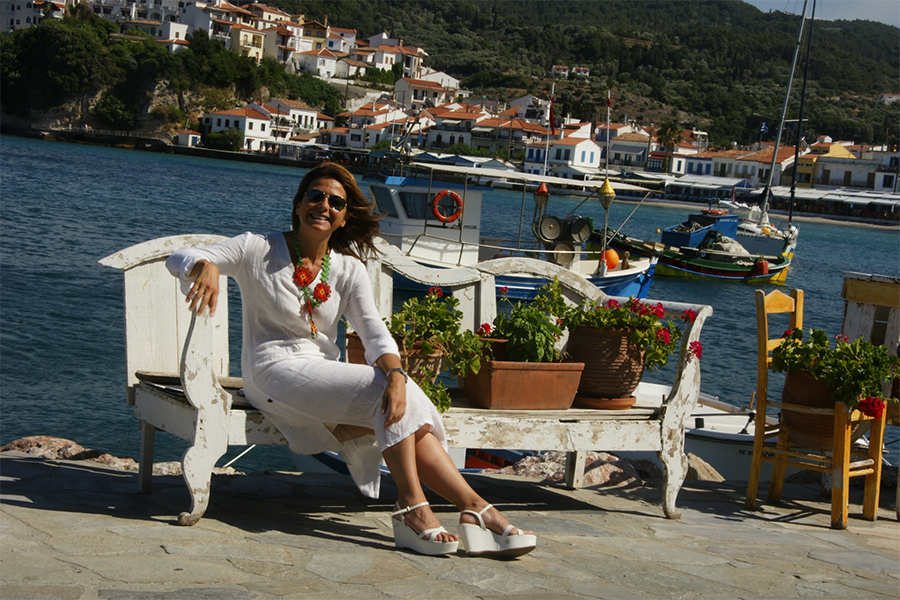
Maya Tsoclis
“You look at a shop window and for the first time in a long time, you want to buy a pair of shoes. Your food has some flavour. You make plans for the weekend. You consciously taste every moment but you feel alienated from the world around you.” Travel broadcaster and journalist Maya Tsoclis – and now breast cancer ambassador – shares her own personal experiences with the illness in this compelling and moving read.
Before:
You live your life, you make your plans, you care about those around you, you are often consumed in nonsense, you have your priorities, you somehow imagine your future. You postpone. You are constantly procrastinating because you can afford to do so. You postpone the small moments of happiness, you postpone a new beginning, you postpone a meeting with someone who loves you, you postpone a trip….Because there is always a tomorrow, mate.
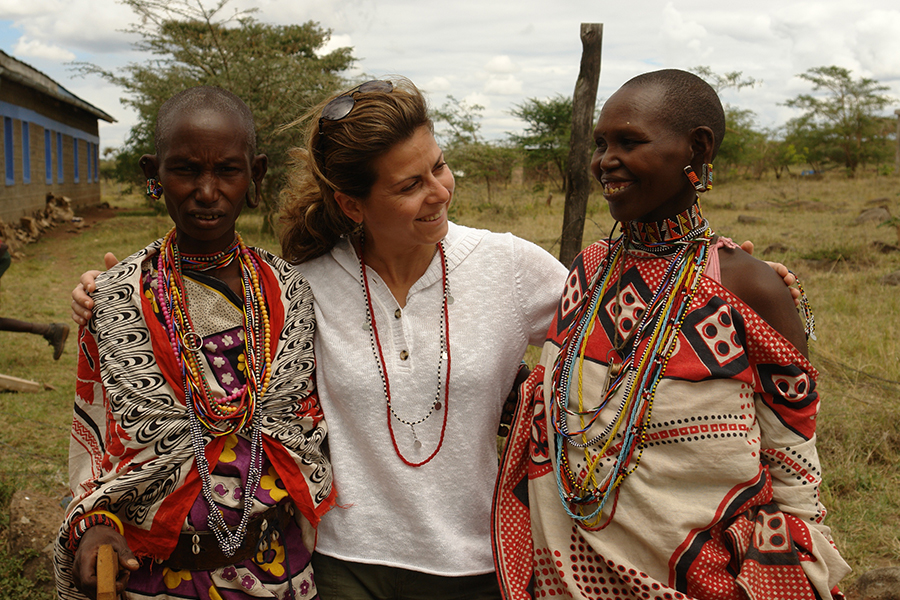
Maya Tsoclis in Kenya
You are always under pressure. From work, from your children, your parents, from your own decisions that you thought would be mentally painless. You do not sleep well. You go to bed late to hang out with your husband, you wake up early to hang out with your kids. Bells ring inside you, around you, the bells become alarm bells and you insist on wearing earmuffs.
Then:
With a sigh, you enter a grey apartment building in Ampelokipi, you take the elevator, you go up to the third floor. You have an appointment for dinner afterwards, and you are afraid that you will be late.
When people make plans, God laughs, they say. And like a guillotine, the verdict falls. As if destined elsewhere, yet not. This is your life. Someone tells you, “Psst, you who belongs to the group of the living, from now on please, join the queue of the big question mark.”
I remember when I was little, I had a dream: it was at our summer house in Hydra. Just below our house was a wonderful square with two wells and two large mulberries. That’s where we played, all of us little ones. So in my dream, we were playing ‘mila’ (a popular game with one team on either extreme throwing a ball ‘the apple’ aimed at the other players in the middle. The aim of the hitters is to hit, of those in the centre to avoid being hit. Once hit, the player in the middle has to step out of the game). And at some point, my friends stop throwing the ball at me. The game goes on without me. I watch it, but I do not participate. I become invisible. After that dream, I always said that I knew what it was like to no longer exist. You move in a parallel space-time, you do not tread firmly on the ground, you do not know in which direction to look. That is how you feel when you hear the news.
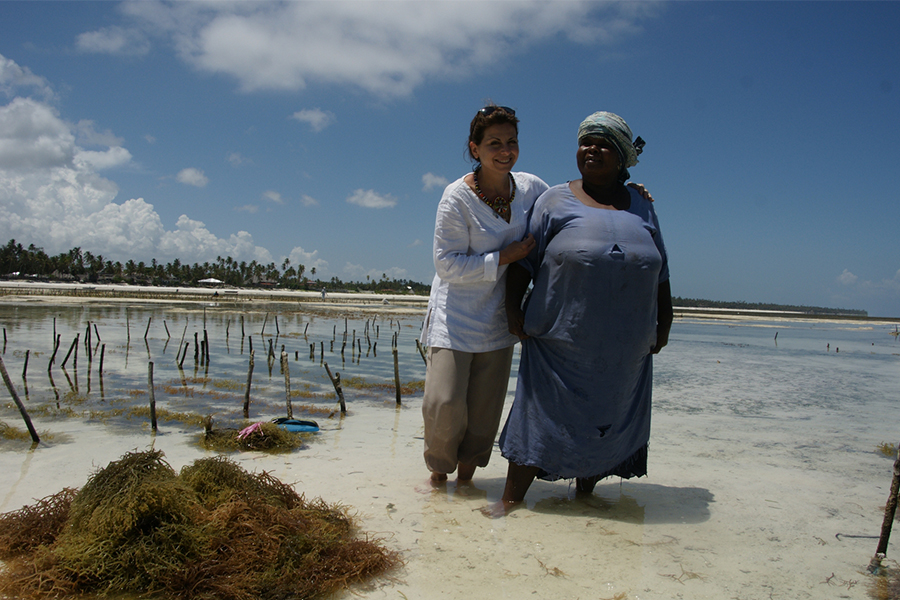
Maya Tsoclis in Zanzibar
I know that a common reaction in people who learn that they have cancer is “Why me?” Of anger. I did not react like that. On the contrary. I said to myself, “Yes, of course, why not me?” Life has given me so much, it has been so generous. At some point, its payback time.
From that point on when your thoughts were “Please, let me not have it,” you start the tests and you think “Please, let me have only this.” Every new test is an agony, every favourable answer, a sigh of relief. You ride the chariot of statistics (when it suits you) and gallop on a lonely uphill, unknown one-way street.
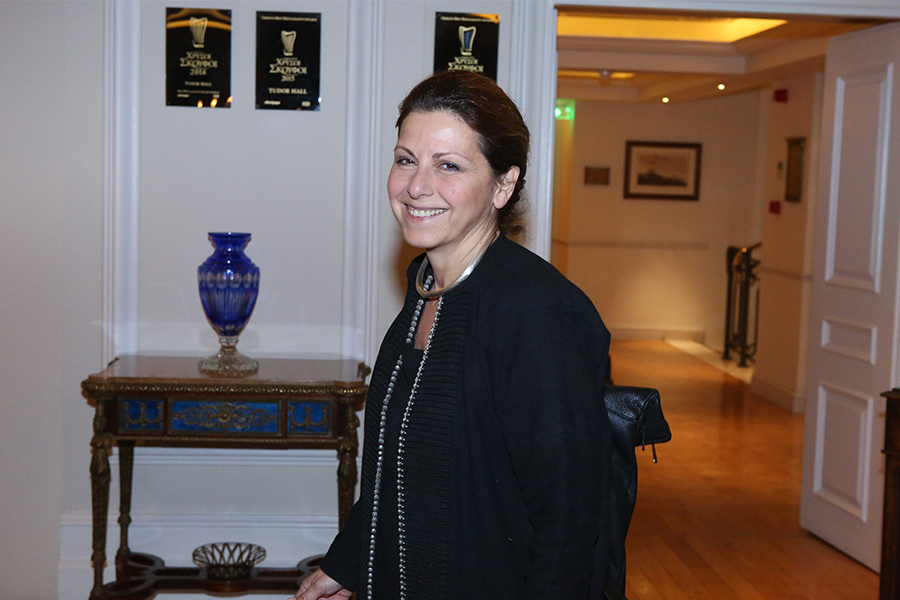
Maya Tsoclis attending Athens Insider’s Think Tank on Tourism at the Hotel King George ©Kostas Mpekas
During:
Together with Eleni Faliakou, I visit the oncologist Danai Daliani. I joke with my doctors, I need to feel an emotional touch. If I can not create a bond, I will change doctors, I tell myself. But we do it. I follow the protocol of preventive chemotherapy.
The orange drops fall rhythmically. You see the liquid rising in the tube, rising, reaching down and then getting lost. You forget the self you knew. You forget the inside of you, you forget the outside of you.
You are anxious about the unknown side effects. You are stripped of your plumage. About the chemotherapy, my friend, the pediatric surgeon George Pergamalis, tells me, “Do not be afraid, look at it as a treatment that will save your life.” And so I do. I exercise, I continue my shows, I go to Parliament, I do not read about my health except on the internet. I have an amazing nurse, Dimitris, who helps me with the everyday practicalities of the treatments. Nurses play a crucial role in the experience of chemotherapy, do not underestimate them.
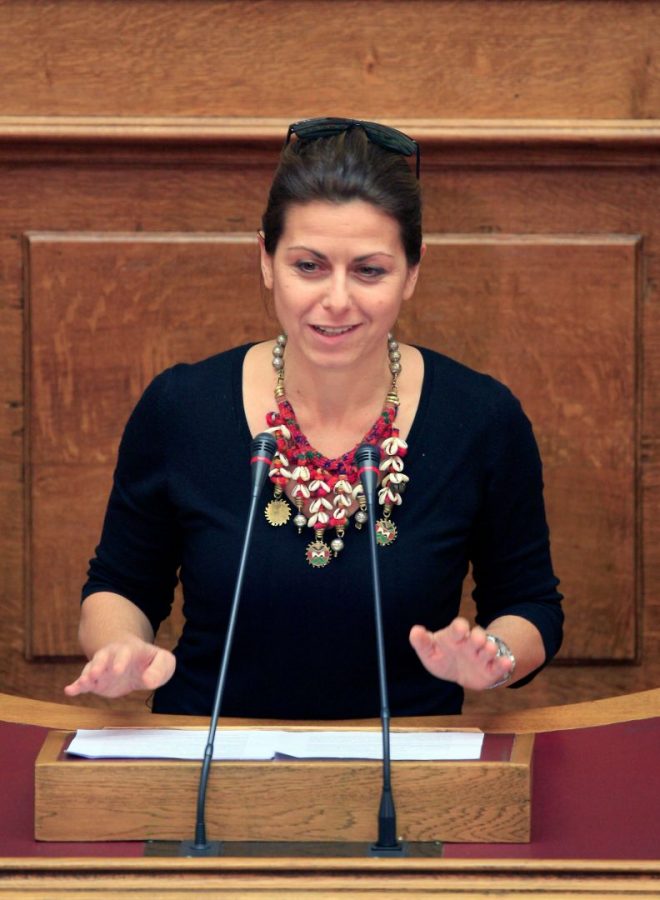
Maya Tsoclis addressing the Greek Parliament
Time moves slowly. Minutes, hours, days after each treatment. I say goodbye to my hair, change my skin, I try to look like myself (without much success judging by the photos at the time). I do not have daily desires.
And family? And friends? And my partner? They seem to have taken it optimistically and although there were times when I said “Well, they live in their world, they do not understand!” Still, I think they probably helped me.
I cut off people who approached me with drama, with pain, who were so sad, that they “sympathized mentally” with tears in their eyes. When you live with cancer, you want understanding, you want support, you want a push sometimes, but in no case do you want anyone’s pity.
Besides, as the proverb goes, “many are the dead, sitting with you on the sick bed”.
It is the sense of time that changes. It is the cessation of every desire, of every future plan. It is, like the childhood game of my dream, the life that goes on for those around you, and you remain a spectator of it, to wonder if you will play again in the team of the living. It is the hope and the only way of survival. The powers that you did not know you had. It is the responsibility for the grief you impose on your loved ones.
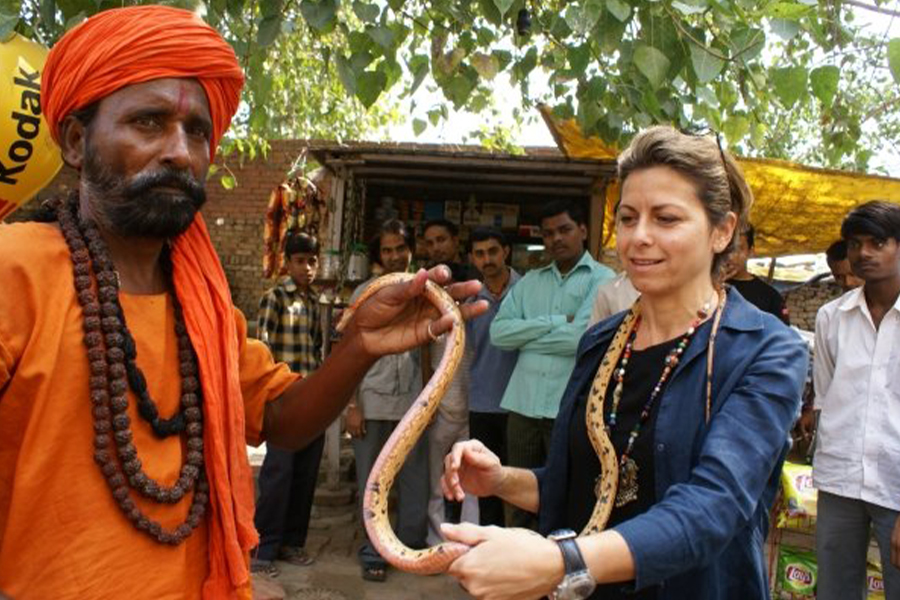
Maya Tsoclis in India
Time flows slowly when you live with a cancer. You say, “Let me move a year ahead, 2 years ahead.” I’m still at home, playing with my dogs, saying goodbye to my child leaving for school. Do I watch TV on the couch?
It is a hard lesson of patience. And time passes. The first cycle ends. You are anxious to see how you will face the next one. And the whites (blood corpuscles) fall and they inject you to lift them, and your chest hurts, your ankles hurt, your joints hurt, wrinkles appear that you have never seen before, and you endure. And often, very often, as women with similar adventures confessed to me, you also lose your partner who, no longer able to endure drugs, hospitals and darkness, resort to healthier hugs.
Along with spring, my hair starts to sprout again. I untie my hair, and slowly I start to look like myself again. Some colour returned to my cheeks, the whites (blood corpuscles) went up a bit, the treatments stopped and the beautiful Nolvadex entered my life for six years.
The After
How is it possible to take a medicine every day, for years, and not remember its name. It is as if the chemo brain is to blame for this blur that remains after the chemotherapy and that makes it disappear for years. But it can also be a refusal to accept that now, you live with it. Because yes, there is clearly a before and a after. In the aftermath, you’ve been carrying the weight of your cancer like a heavy baggage. It will accompany you forever, even if at times you forget it. And if you do not manage to make it a friend, at least you have to accept it as a scary-companion.
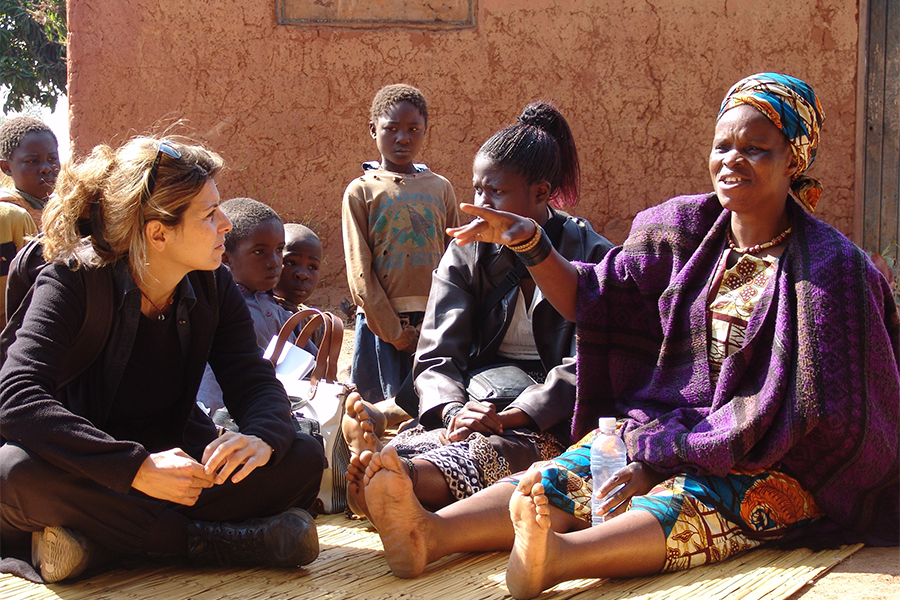
Maya Tsoclis in Lusaka
Then – if you are lucky – you catch the thread again. Gingerly. Slowly. One step at a time. You look in a shop window and find that for the first time in a long time, you want to buy a pair of shoes. Your food has some flavour, you make plans for the next weekend. You consciously taste every moment but you feel alienated from the world around you. You try to convey the lesson of your adventure and find that it is in vain.
What did cancer teach me? It did not teach me anything. It just confirmed what I only knew in theory. That is, what those who had gone through it before me had said. The preciousness and fragility of life. The importance of this consciousness now. The phrase of my grandmother when she said to me “Wish you never get what you cannot bear.”
I hear about the bravery of the people who are fighting for their lives. It isn’t bravery. It is a one way street. To endure. Stay upright. What bravery? Either you endure or you commit suicide. Perhaps the most interesting is this restart that -if all goes well- you are forced to do. That is, you are given an opportunity to start again with a clean chit for your failures so far. Most likely, of course, as soon as you feel alive again, you will return to what you were.
This is my adventure. It is obvious that for each of us, like the disease itself, the experience is different, as is the outcome. I wish strength to those going through adventure, and to the doctors, wisdom. To everyone else, prevention and prevention, yet again !!!
There is a nice Snoopy plot where Charly Brown tells Snoopy “Snoopy, one day we will die” and he replies, “yes we will live all the rest!” . We must continue with this logic. No one makes a contract with the Higher being every morning that he will make the day. We live by luck, through a series of favourable coincidences.
Excerpts from a speech by Maya Tsoclis in Drama in October 2020 on the occasion of Breast Cancer Prevention and Awareness Month. Translated from Greek into English by Sudha Nair-Iliades.

